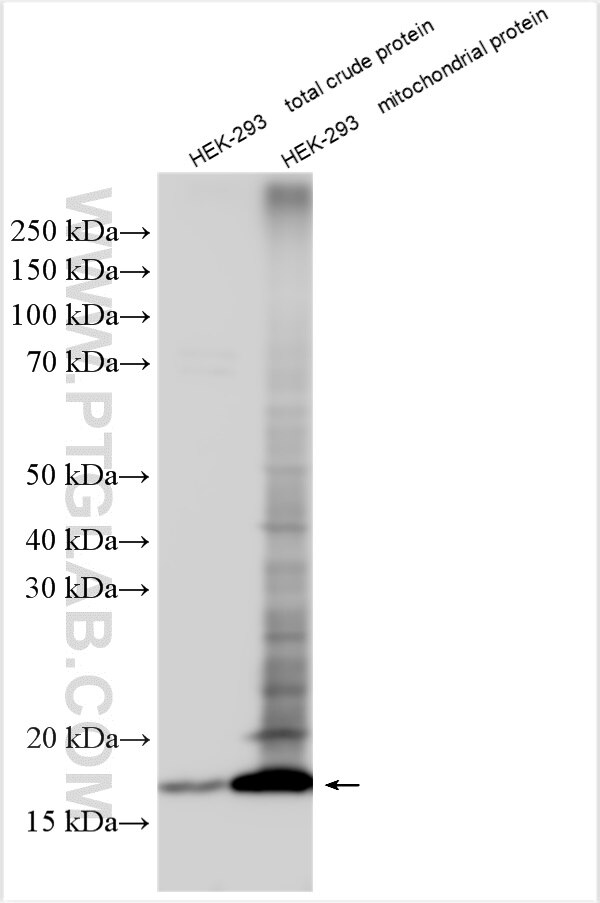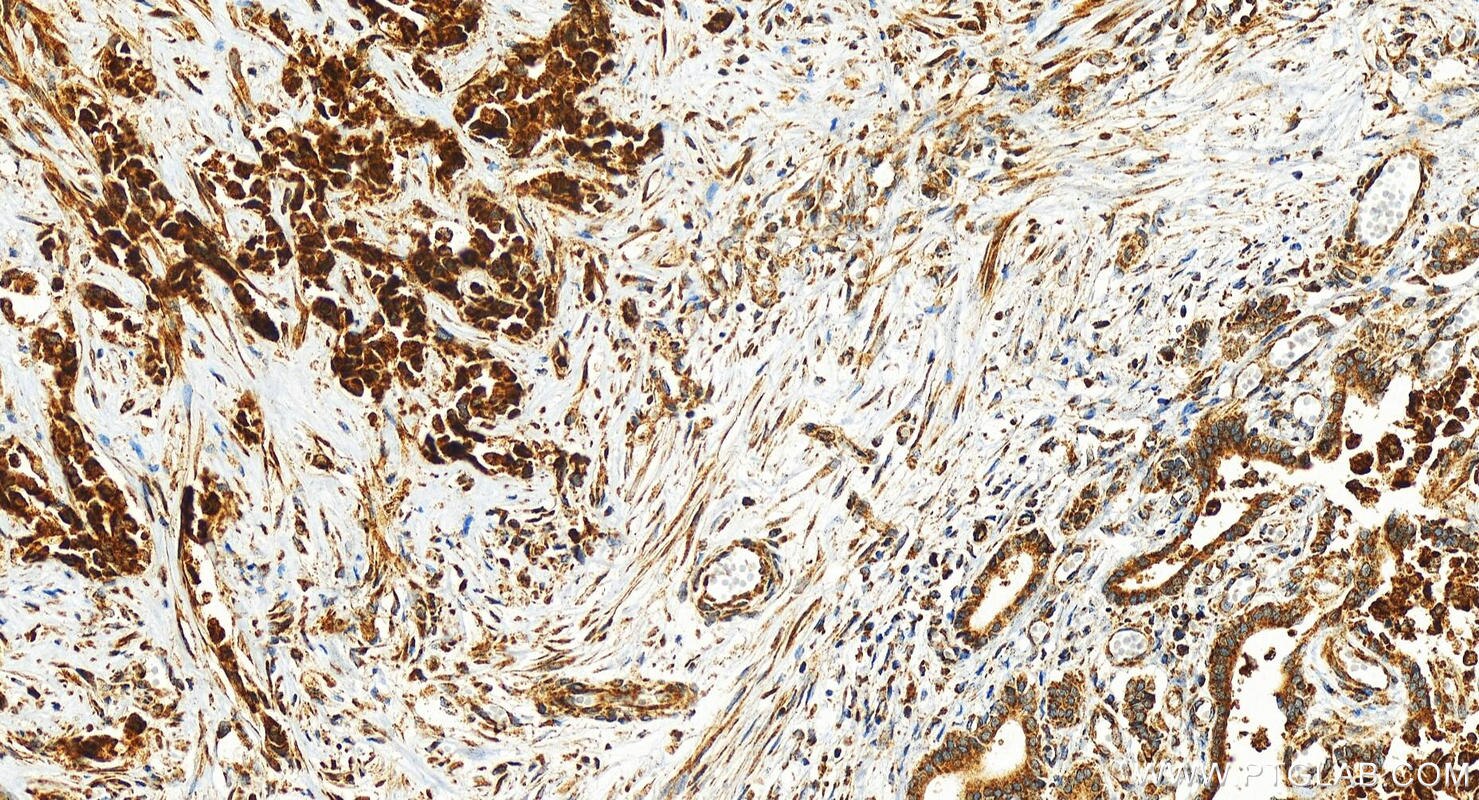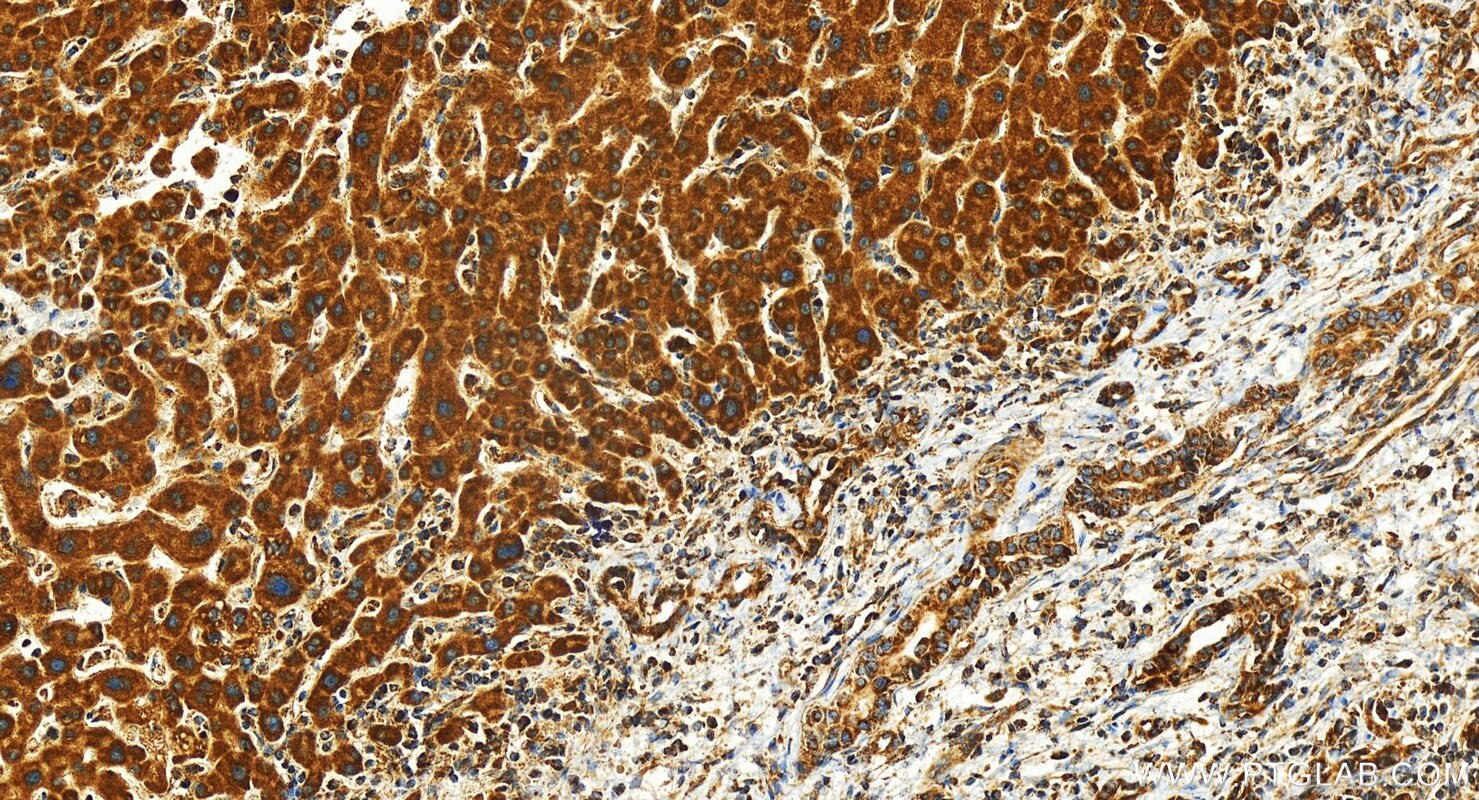Tested Applications
| Positive WB detected in | HEK-293 cells |
| Positive IHC detected in | human intrahepatic cholangiocarcinoma tissue Note: suggested antigen retrieval with TE buffer pH 9.0; (*) Alternatively, antigen retrieval may be performed with citrate buffer pH 6.0 |
Recommended dilution
| Application | Dilution |
|---|---|
| Western Blot (WB) | WB : 1:500-1:1000 |
| Immunohistochemistry (IHC) | IHC : 1:50-1:500 |
| It is recommended that this reagent should be titrated in each testing system to obtain optimal results. | |
| Sample-dependent, Check data in validation data gallery. | |
Product Information
26451-1-AP targets TMEM160 in WB, IHC, ELISA applications and shows reactivity with human samples.
| Tested Reactivity | human |
| Host / Isotype | Rabbit / IgG |
| Class | Polyclonal |
| Type | Antibody |
| Immunogen | TMEM160 fusion protein Ag24915 Predict reactive species |
| Full Name | transmembrane protein 160 |
| Calculated Molecular Weight | 188 aa, 20 kDa |
| Observed Molecular Weight | 15-20 kDa |
| GenBank Accession Number | BC002907 |
| Gene Symbol | TMEM160 |
| Gene ID (NCBI) | 54958 |
| RRID | AB_3669535 |
| Conjugate | Unconjugated |
| Form | Liquid |
| Purification Method | Antigen affinity purification |
| UNIPROT ID | Q9NX00 |
| Storage Buffer | PBS with 0.02% sodium azide and 50% glycerol , pH 7.3 |
| Storage Conditions | Store at -20°C. Stable for one year after shipment. Aliquoting is unnecessary for -20oC storage. 20ul sizes contain 0.1% BSA. |
Background Information
The transmembrane protein (TMEM) family encompasses transmembrane proteins that traverse the lipid bilayer and wield critical functions across various cell types, encompassing inflammation and store-operated Ca2+ entry. TMEM160, a identified transmembrane protein that is localized in the mitochondrial membrane, has been implicated in neuropathic pain.
Protocols
| Product Specific Protocols | |
|---|---|
| WB protocol for TMEM160 antibody 26451-1-AP | Download protocol |
| IHC protocol for TMEM160 antibody 26451-1-AP | Download protocol |
| Standard Protocols | |
|---|---|
| Click here to view our Standard Protocols |







